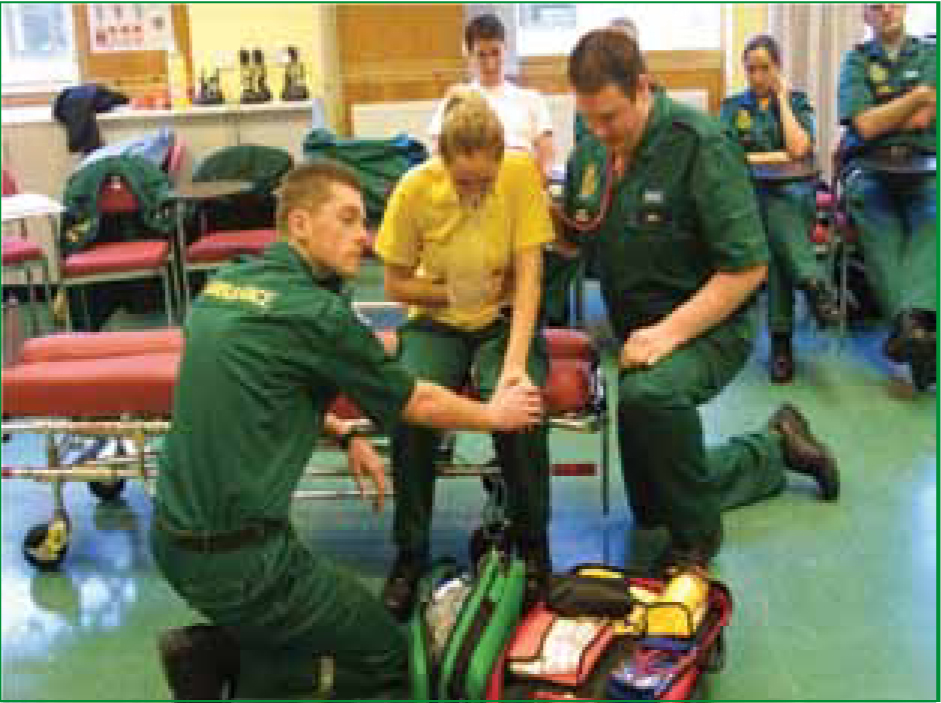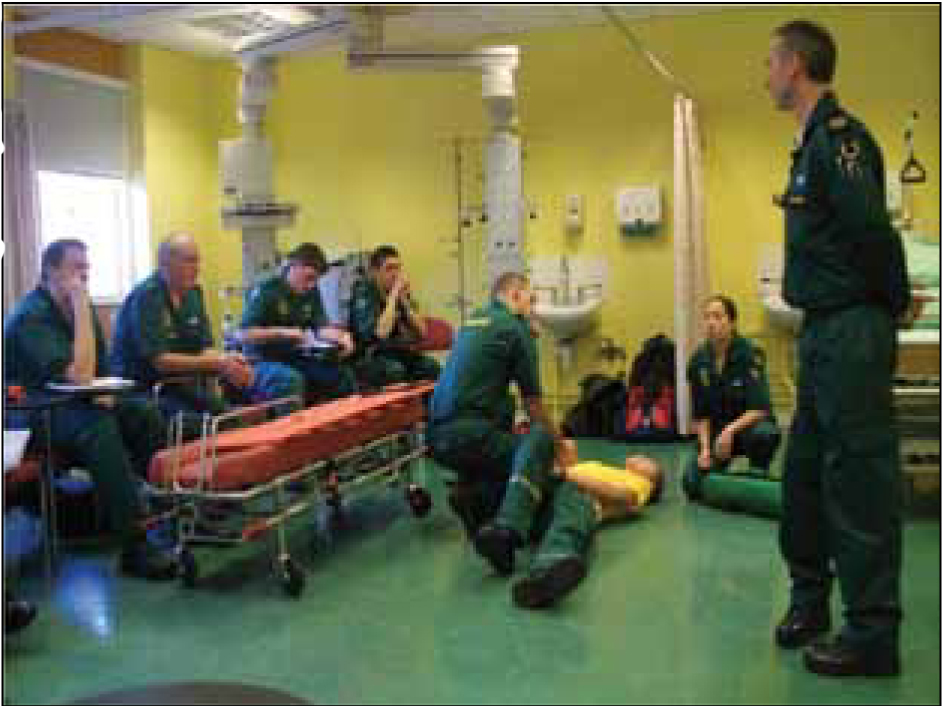So, why Preston, of all places? The School of Health within the University of Central Lancashire is a well established provider of health care education at both pre and post registration levels, having evolved from the former Lancashire School of Nursing, joining the University in 1996. The school currently offers pre-registration preparation for nurses (adult, child and mental health branches), midwives, operating department practitioners and, most recently, paramedics.
Just over a decade ago the Government published The NHS Plan: a plan for investment and a plan for reform (Department of Health (DH), 2000) with the aim of creating a health service fit for the 21st century.
This vision shaped the beginning of a climate of change by examining the responsiveness of the NHS to the needs of its users, through quality assurance and enhancement, widening access and staff development to the needs of its users, measured levels of quality, widened its accessibility and provided guidance for the service and its staff in accomplishing its target. Key components of the plan included clear leadership, new ways of working and, most importantly, investment in its current workforce to develop skilled practitioners and teams with the knowledge and skills required to deliver excellence in care.
Peter Bradley's paper, Taking Healthcare to the Patient (DH, 2005) endorsed the need for transformation of current service provision, through the development of the role for paramedic practicioners. Bradley made a wide range of recommendations within his paper ranging from improvements in call to connect, time to promoting partnership working—all with the shared goal of creating a responsive and dynamic service with high quality patient care embedded within its culture. This document became the cornerstone of modernization within the UK ambulance service, not only in relation to clinical practice but, academic development and career pathways for paramedic practitioners, supporting the development of senior and specialist paramedics.
In response to this, the University of Central Lancashire was one of the first universities in the UK to offer pre-registration paramedic education through the development of a BSc (Hons) Paramedic Practice degree. This course was developed in conjunction with, what was then, Lancashire and Cumbria Ambulance Services, and conjointly validated with the Health Professions Council. The course began accepting students in September 2005 and has attracted students from all over the UK.
‘The move of pre-registration paramedic education into universities has ignited the higher education spark among many existing paramedics within the North west Ambulance Service’
Pre-registration diploma
In 2008, the local strategic health authority released a tender document for local higher education institutes (HEIs) to bid for commissioned pre-registration paramedic education in the form of a two-year, full-time diploma of higher education. This new course accepts direct entry students via the UCAS application system, as well as existing emergency medical technicians, who enter the course in year two and complete a one year conversion programme to become registered paramedics.
The pre-registration diploma is also conjointly validated by the HPC, which means that successful students will be automatically entitled to apply for registration as paramedics. This move of pre-registration paramedic education into universities has also ignited the higher education spark amongst many existing paramedics within the North West Ambulance Service, to the extent that many of them are well on the way to completing a post-registration diploma in higher education focused on prehospital care.
Top-up degree
Now that the minimum academic standard for paramedics is moving towards the DipHE level, it seemed prudent for the university to consider the needs of paramedics already working at a senior level or, indeed, those with aspirations for advancement. To this end, the University of Central Lancashire is now offering a BSc (Hons) Enhanced Paramedic Practice (top-up) degree, designed not only to develop individuals, but to influence the ambulance service as a whole.
This top-up degree is unique in that it acknowledges the College of Paramedics Framework Career pathway (2008), with its modular content and design reflecting this. Thus, it is targeted towards those wishing to enhance their knowledge and skills as senior and advanced level practitioners.
The new top-up degree will allow qualified paramedics to increase their skills, broaden their clinical knowledge and enhance their paramedic career (Figure 1). Developed in consultation with North West Ambulance Service (NWAS), service users and the course team, the aim of the programme is to give existing paramedic practitioners the opportunity to widen their academic portfolio, as well as build upon clinical knowledge through the integration of theory and practice. It aims to enable the paramedic to lead and develop out-of-hospital care, acquire enhanced practice skills and to be able to critically appraise their own and that of others' practice (Figure 2).


Programme of study
The programme of study will encompass learning in relation to the following themes:

We aim to widen the students knowledge base in order to create dynamic practitioners with the skills required to meet the demands of health initiatives and organizations.
Additional themes such as public health will also be included within the course content. This will enable paramedics to situate themselves within the wider health care arena.
A wide variety of learning resources will be used within the course including the well-equipped clinical skills laboratories (which includes a simulated ambulance), virtual learning environment, classroom based study and extensive range of information technology.
Course structure
The BSc (Hons) Enhanced Paramedic Practice is a flexible top-up degree programme that enables qualified paramedics to develop specialist knowledge and skills. The programme is made up of 5 core modules which amount to a total of 120 credits at academic level 6. The programme is designed to offer a two or three year part-time pathway, however these options are not prescriptive, there is some flexibility to allow the students up to a maximum of 5 years in which to complete the programme.
The core team of five paramedic lecturers at UCLan is augmented with academic staff from a wide variety of professional backgrounds within the School of Health. Ultimately, this course will enable paramedics to drive their profession forward through research and service improvement. There is a strong, productive research team within the School of Health, giving students the experience that will firmly place paramedic practitioners within the primary health care team.
Conclusion
In the not too distant future, paramedic practice will follow other professions allied to medicine and become ‘degree-only’ with respect to pre-registration preparation. This is an exciting opportunity for the profession as it will allow for greater diversity of the role and enable paramedics to move into other areas of health care, secure in the knowledge that they have developed their own distinct identity and body of knowledge through research and education.
At the University of Central Lancashire, we intend to continue to support paramedics through this transitional period and beyond. Further information on all our paramedic related courses can be found on the university website. Please visit, www.uclan.ac.uk and put ‘paramedic’ into the search engine.
